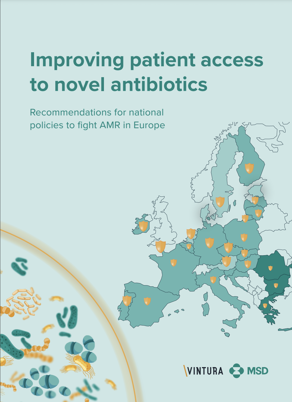How to improve patient access to novel antibiotics in Europe: Recommendations for policies to fight AMR (Guest blog)
24.11.22
In the context of the European Antibiotic Awareness Day, the European Centre for Disease Prevention and Control (ECDC) published a series of reports which confirm the considerable health burden of infections with antibiotic-resistant bacteria in the EU. The ECDC reports shows that drug-resistant infections are increasing faster than expected, in particular in healthcare settings, causing more than 35,000 deaths yearly. WHO has declared AMR to be one of the top 10 global health threats facing humanity, and the EU’s HERA has listed it as one of the top three health threats.
Without antibiotics to prevent and treat infectious complications, surgery, caesarian sections, chemotherapy or organ transplantations would not be possible. Yet, as bacteria become resistant, antibiotics lose their effectiveness and treatments that we currently take for granted as routine procedures will become increasingly risky.
To address the growing threat of antimicrobial resistance (AMR), we must ensure the appropriate use of our existing antimicrobials and also ensure a robust pipeline of new antimicrobials is under development to keep pace with resistance. However, we do not have the pipeline we need due to the unique market challenges of novel antimicrobials.

